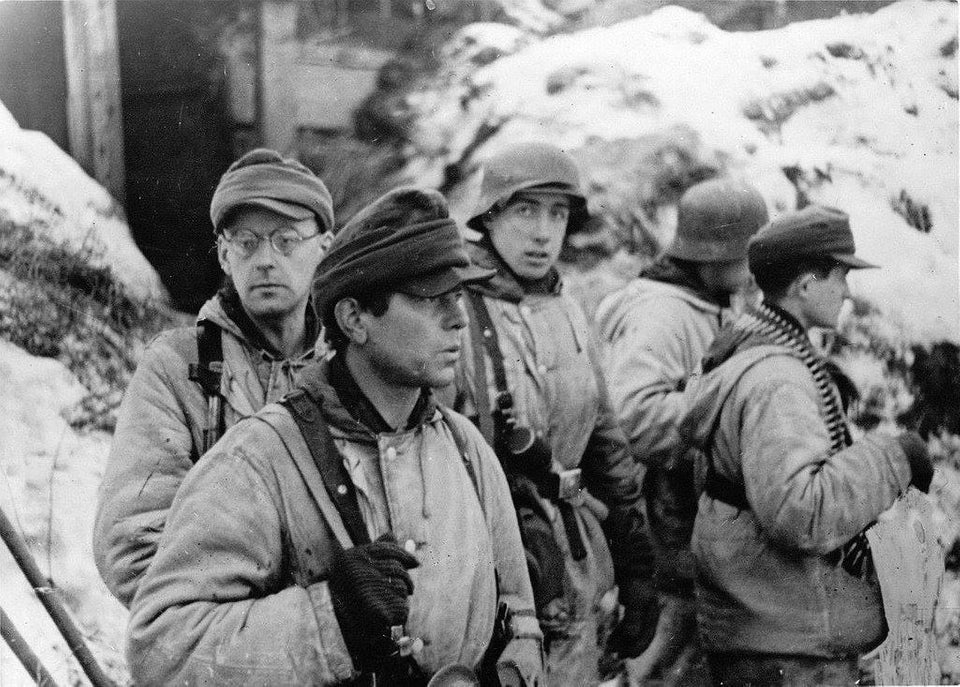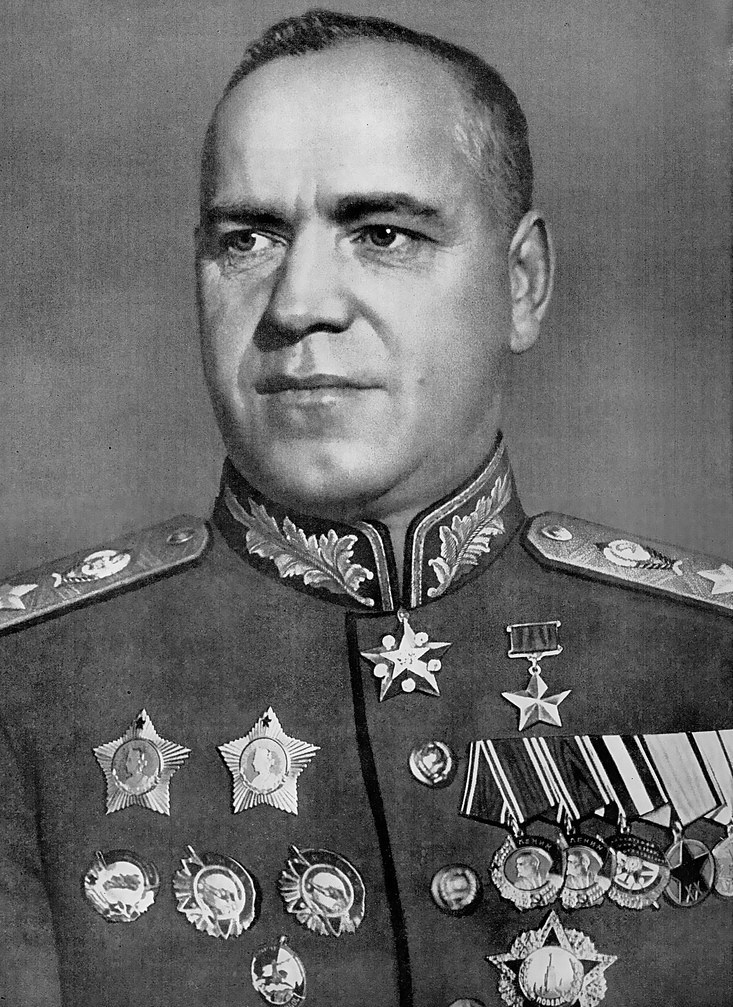There are human limits. Infantry being able to move through swamps and forests doesn't mean the Soviets could get artillery packed in those areas. For one thing the restricted front would prevent deployment of that amount of artillery or even as much as IOTL as they focused their guns in specific bits of the front line; their ultimate artillery concentration actually achieved in the war was 420 guns per km and that was only achieved by packing them in like sardines within range of the targets and because the Germans as of January 1945 were not conducting much preemptive counter battery fire, which would have made the tactic suicidal.
When you dismiss practical limitations you're getting into Soviet-boo territory. Besides even if the Soviets did, which would take 4-5 months to achieve if the Vistula offensive is our model for such things as it was the greatest concentration of Soviet artillery ever, and the Germans kept up their tactic of withdrawing to a main resistance line before the Soviet artillery bombardment (Soviet sophistication with 'dummy bombardments' was a later innovation), it largely negates the impact as it had in Rzhev throughout 1942, Smolensk in summer 1943, and the winter 1943-44 Belorussian battles.
1942-43 demonstrates that in this area the presence of such units meant nothing to do with the success of operations. They had their uses, but hardly guaranteed success. The Bagration offensive success IOTL had more to do with the stripping of AG-Center of reserves to use elsewhere and Busch allowing his forces to get locked in fire-sacks (like Vitebsk) that in this scenario would be eliminated.
Penal units were wiped out long before German defenders were. Given that a pull back like this would force the Soviets to reset their entire offensive preparations that gives the Germans a minimum of 3 months to further dig in beyond what they had already done before the pullback (IOTL the Beaver line was already prepared). If you want a later example of when such things failed see the Courland pocket. Despite 6 major offensives to destroy it from late 1944 through 1945 it was the last army group to surrender and it did so undefeated given that they were able to use the terrain and restricted frontage to their advantage. No amount of artillery or penal battalions succeeded. It had similar terrain and restricted frontage (men per km) as Courland.
Sure, but that didn't guarantee success, see Courland from 1944-45 that resisted all Soviet offensives to crush them. Very similar situation and with a general who was considered a favorite of Hitler's.
If you can read German this link has a ton of info about that series of offensives:
Informationen über die 6 Kurlandschlachten im Kurland-Kessel im Jahr 1944/45, sowie über die dort eingesetzten Divisionen. Bild und Kartenmaterial und Links zur Suche nach dort vermissten Angehörigen.
www.kurland-kessel.de
Life and Death Struggle for the Courland Bridgehead By Ludwig Heinrich Dyck Trapped in a pocket with their backs to the Baltic Sea, the German Army Group of “Fortress Courland” fought v…

ludwigheinrichdyck.wordpress.com
Or read up on Narva.
Again see Narva and Courland. Bagration worked due to special circumstances that would be eliminated by a pull back to a prepared line, even if from that point on such retreats were not allowed.
Sure, but there were limits to LL. The Soviets only got 1/3rd of what the British did due to limitations in port capacities, shipping availability, and transport inland within the USSR. So while the Soviets had considerable amounts of things via LL and domestic production they did not have unlimited amounts of everything. As we saw from the long breaks between major offensives for a front area even with all of the LL it still took months between major operations for Soviet front areas to be able to attack again. I cited the withdrawal from Rzhev in early 1943; after that it took the Soviets from March 31st 1943 until August 1943 to attack again. When they didn't pause after a major operation, like their autumn/winter 1943-44 offensives in Belarus right after the Smolensk operation, they were very badly defeated:
Again if that were true they should have been able to wipe out the Courland pocket easily or Narva. Bagration was able to succeed due to special circumstances, circumstances that would have been eliminated by the withdrawal to the Beaver line shown in the map in earlier posts. At that point the terrain, removal of major partisan forces to the rear, shortening of the line to concentrate troops and free up reserves, and restricting of deployment areas for Soviet troops and artillery plus of course forcing them to cross a major river to be able to even attack would have all prevented an easy Soviet victory leaving them only the option of another series of extremely costly frontal assaults without opportunity to launch a 'deep battle' that was so successful IOTL.
That doesn't mean they couldn't create the circumstances progressively by a series of offensives like they did from August 1943-April 1944 IOTL, but the cost of such operations would have been so horrible that it is unlikely that the Soviets have enough reserves left to get to the Vistula via the routes north of the Pripyat Marshes given that they aren't getting access to the fighting age male population under German occupation to conscript replacements.
That's the thing, if the Belorussian route is stymied in summer 1944 Stalin would do what he did the pervious Autumn-Winter 1943-spring 1944: attack in Ukraine. That is where my last post comes into play, because with AG-North and Center able to hold their lines through the summer of 1944 then reserves aren't needed there and they can all be focused on the 1st Belorussian and 1st Ukrainian Fronts attacking AG-North Ukraine. IOTL due to Bagration they were stripped of 9 divisions and left with only 4 German panzer divisions and 1 Hungarian armored division.
As pointed out in that last post they'd have had 3 more German panzer divisions and 6 infantry divisions, including the very powerful 5th panzer division with it's tiger battalion and full panzer battalions just on day 1 of the Soviet offensive. The first wave of reinforcements that could arrive in a week if needed would be 2 ss panzer divisions, 1 Heer panzer division, and the GD division. After that a 2nd wave arriving within 2 weeks would be another 3 panzer divisions including the HG division from Italy plus the IV ss corps. That should all be enough to stop a Soviet breakthrough anywhere in AG-North Ukraine's area, which would allow them to retreat to another defensive line (Hitler did allow that IOTL) if needed. So the Soviets don't reach the Vistula in 1944, no Warsaw Uprising, the Baltic states remain unoccupied, etc. in 1944.
The question is Romania; if forced to strip it out of reserves like IOTL to counter the major Soviet offensive in Ukraine and then potentially needing reserves to help AG-Center/North in Autumn Romania could fall per OTL, while then leaves the situation in Hungary and the Balkans like OTL except with extra Axis forces not destroyed ITTL who could be used to launch more effective counter offensives at Debrecen.
However if after the Ukraine operation over summer reserves are able to return to Romania then the Axis troops there might have a chance to retreat in good order rather than being trapped per OTL, which changes the Balkan situation considerably even if Romania still tries to change sides. I'm thinking the divisions that would be able to come back would the GD division and 2 Heer panzer divisions. The IV ss corps and its two divisions would likely be needed to defend Poland in the Lublin area, the HG division would be needed to form the HG panzer corps that was set to be ready later in 1944 and was forming in Poland but could well end up deployed to support AG-Center if needed, and most of the rest of the Heer panzer divisions would probably have to stay with AG-North Ukraine to make up for infantry divisions losses during the Soviet offensive.
So that should leave AG-NU with 2nd Hungarian armored divisions, 1st, 4th, 5th, 6th, 7th, 8th, 16th, and 17th Panzer divisions, and the IV SS panzer corps (3rd and 5th ss panzer), aka more than double what they had IOTL, while the 19th and 24th panzer divisions and GD division could return to Romania. That isn't counting panzergrenadier divisions. Then the HG corps could end up with AG-Center. It is possible then that they could hold the line through 1944, especially if the powerful units they were forming in summer 1944 in the east get to finish forming (feldherrenhalle division, HG corps, IV ss panzer corps, Russian 29th ss division). Plus if the Ukrainian SS division aren't wiped out that summer and west Ukraine is held then there is an important recruiting ground for manpower going forward. Given manpower shortages if the RONA SS division is able to form without having to be diverted to fight in Warsaw they too could end up being a significant force as there were 2 Russian ss divisions being formed. IOTL after the Warsaw situation was under control they were dispersed elsewhere, but ITTL they'd probably end up formed into a corps and used in the East where desertion would be much tougher than in France where one of the divisions ended up and parts defected to the French resistance. Of course without the defeats of summer 1944 their morale would have been much higher and they'd be less likely to defect given that there would be hope of actually surviving on the Axis side.
If the line holds that would deprive the Soviets of vital replacements in occupied territory, while preventing Balkan Axis allies to defect, Finland might remain in the war which would tie down vital Soviet manpower, while plans to start using Russian and Ukrainian manpower would have a chance to work. Plus Baltic manpower could be tapped even more without having those states lost to the Soviets in 1944. Not only that but without losing large amounts of territory or having units wiped out wholesale equipment losses would actually be manageable, which is a massive gain over OTL. Not only that, but production centers in Poland and Hungary, which had been built up to be out of range of Wallied bombers, would still be active as would the production of raw materials from their deposits in those countries, which means going into late 1944/early 1945 the Axis would have a lot more equipment, firepower, and supplies they lacked IOTL.
The situation in the west is a whole other discussion in this scenario, but if the eastern front holds that changes the situation in the west considerably.





